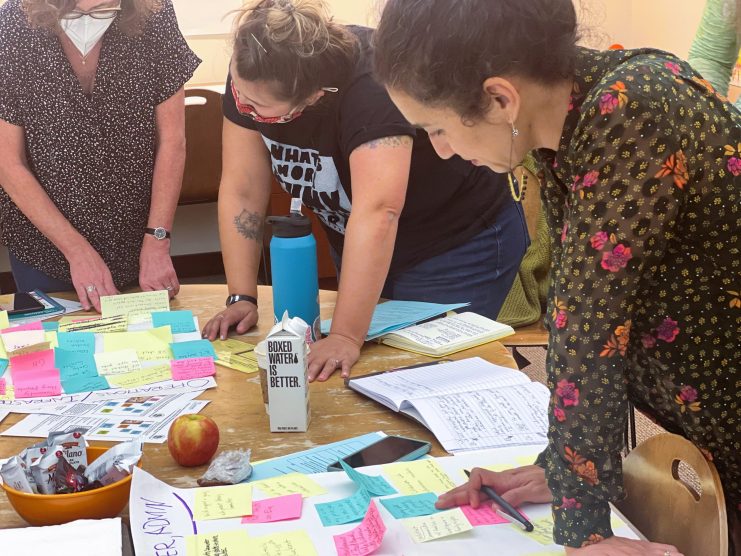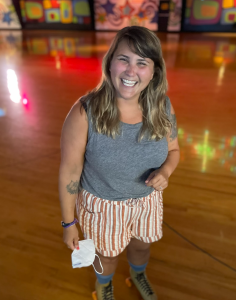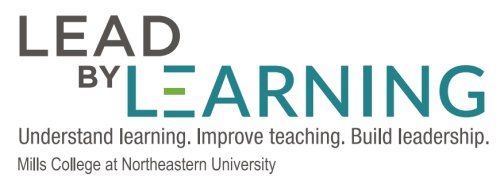
Shifting Professional Culture from Reactive to Adaptive: Integrating Cycles of Inquiry into Full Staff Library PD
After the 2019-2020 and 2020-2021 school year it was REALLY easy to find yourself and your team in a reactive stance – after all we had spent almost two years having to constantly pivot and respond to new masking mandates, new covid testing expectations, new information about what is dangerous and what isn’t.
During those two school years, our Library Team, composed of 5 library staff members, met twice a month on Zoom. Meeting agendas for our monthly Oakland Unified School District library staff professional development, PD, were often only rough sketches that we filled in based on what might happen that week and they were fully operational because they needed to be:
- Do we quarantine books?
- Do we do checkouts at weekly food distribution?
- Did you suddenly find yourself the technology lead at your site, and what does that mean?.
Questions were rarely forward thinking or based in instruction because it was really hard to imagine what things might be like even a few days, let alone a few weeks away.
As the 2020-21 school year came to a close, we began to ask ourselves:
- When is it time to be less reactive to change and more grounded in our vision for Oakland libraries?
- How can we ensure our professional development doesn’t hinder professional growth, but instead allows it to flourish?
- When do blank agendas built on the fly stop being a way to respond to the most pressing needs and start being a hindrance to the professional growth of our team?”
At the beginning of the 2021-22 school year, OUSD Libraries made an intentional choice to partner with Lead by Learning to begin to embed a cycle of inquiry model into our monthly all staff professional development time and develop our leadership of adult learners as a Library Team. Our hope was to move towards PDs that were focused on aligning staff’s every day practice and their vision for their libraries. We asked library staff to pick a professional dilemma or an aspect of the student experience they wanted to focus on and interrogate it over the course of the year. Library staff’s inquiries asked questions such as:
- How can I use 20 – 30 minute class visits to support independent reading impactfully?
- What is the role of frequently read titles/rereading in supporting independent reading?
- How can I impactfully support independent reading while building up the library culture at my school?
- How can I get MORE books going home with kids?
- How do I build positive relationships with students across grades with a limited amount of contact?
This process of redesigning our professional development time was exciting and not without bumps in the road. It was difficult for some members of the team to go from meetings that were about very technical problems with clear answers (How do you teach kids to log into our online library?) to meetings that focused on exploring questions without easy answers (How do you teach a kid to browse for books?). Some staff members expressed that they felt the cycle of inquiry was overwhelming or even a waste of time.
Early in the spring semester, I got a call from a staff member who had not been participating in our meetings much this year. She wanted to talk through a dilemma she was having in her library. She noticed that, in general, her 8th grade students were checking out fewer books than students in other grades and was curious if I had any theories as to why. I drew on my Lead by Learning training to listen to her concerns, ask her some reflective questions, and reflected what I heard her saying back to her. In taking a listening stance, I supported her in the moment to be a public learner. At the end of the conversation, I casually pointed out that this honestly sounded like a great cycle of inquiry question, and if she chose to come by our next meeting she could definitely dig a little deeper into it and have a conversation just like we did with her colleagues. I wish I could say that after that she came to all our meetings and was a total devotee of the cycle of inquiry model, but she did say she would think about it, and expressed openness to participating next year.
Conversations like this reminded me as a leader of adult learning that organizational change is slow, and through little moments shifts in both mindsets and changes can happen.
At the end of the year, it was still a mixed bag in terms of “buy in” to our new style of PD with cycle of inquiry. Supported to collect some end of year data from our adults about their experience, library staff were asked if their attitude or approach to cycle of inquiry had changed over the course of the year. Responses included:
- “Yes, I was very hesitant at first to take the time to analyze aspects of my library, but now I feel more comfortable with tackling the harder questions and more open to talking about them with others.”
- “No, I understand there are a few who are super excited about cycles of inquiry, and that’s great, but it’s not really reflective of all our staff and as a whole.”
- “I am still open to cycles of inquiry. Library district PD needs to be a balance of dispersing information, exchanging new ideas, learning technical tasks, and getting to know peers.”
- “I liked it more than I expected – it was useful exercise and good to incorporate the process into future librarian-ing.”
- “I’ve always considered it important. I still do. :-)”
- “I recognize it as a useful tool. More time to brainstorm in the beginning would be helpful.”
And even with the bumps in the road and “mixed bag” around buy in our end of year survey positively showed the impact of our professional development on students, instruction, and our professional growth.:
- 91% of library staff surveyed said their cycle of inquiry work had a positive impact on student engagement with the library
- 83% reported that it had a positive impact on supporting free and independent reading at their site
- 60% were open to continuing cycle of inquiry next year
- 80% rated the small group conversations they had during our Cycle of inquiry work to be among the most useful aspects of our PD this year
What did I learn as a leader?
Culture shifts are hard. They take time. They take repeated exposure to new practices and traditions. Based on the answers above, I would not argue that OUSD Libraries PD totally transformed over the last year, but I do feel confident saying that important steps were taken in moving towards professional developments that give library staff space to explore meaningful problems of practice and make meaningful progress towards making their vision for their libraries a reality. And as a Library Team we grew too.
So what’s next? Next year we hope to continue using cycle of inquiry with our staff. We want to take some staff feedback and find the right blend of technical staff meeting work and cycle of inquiry professional development work. We will keep inviting staff into the process and keep engaging with our teammates’ concerns, dilemmas, and questions as we move the needle of culture change in our professional learning community.
 Samantha Solomon is a Teacher Librarian at the Calvin Simmons Campus in the Oakland Unified School District. As a librarian she supports 6-12th graders in following their curiosity and does the same for library staff as a member of the Library Leadership Team. This is her 12th year in the district.
Samantha Solomon is a Teacher Librarian at the Calvin Simmons Campus in the Oakland Unified School District. As a librarian she supports 6-12th graders in following their curiosity and does the same for library staff as a member of the Library Leadership Team. This is her 12th year in the district.
